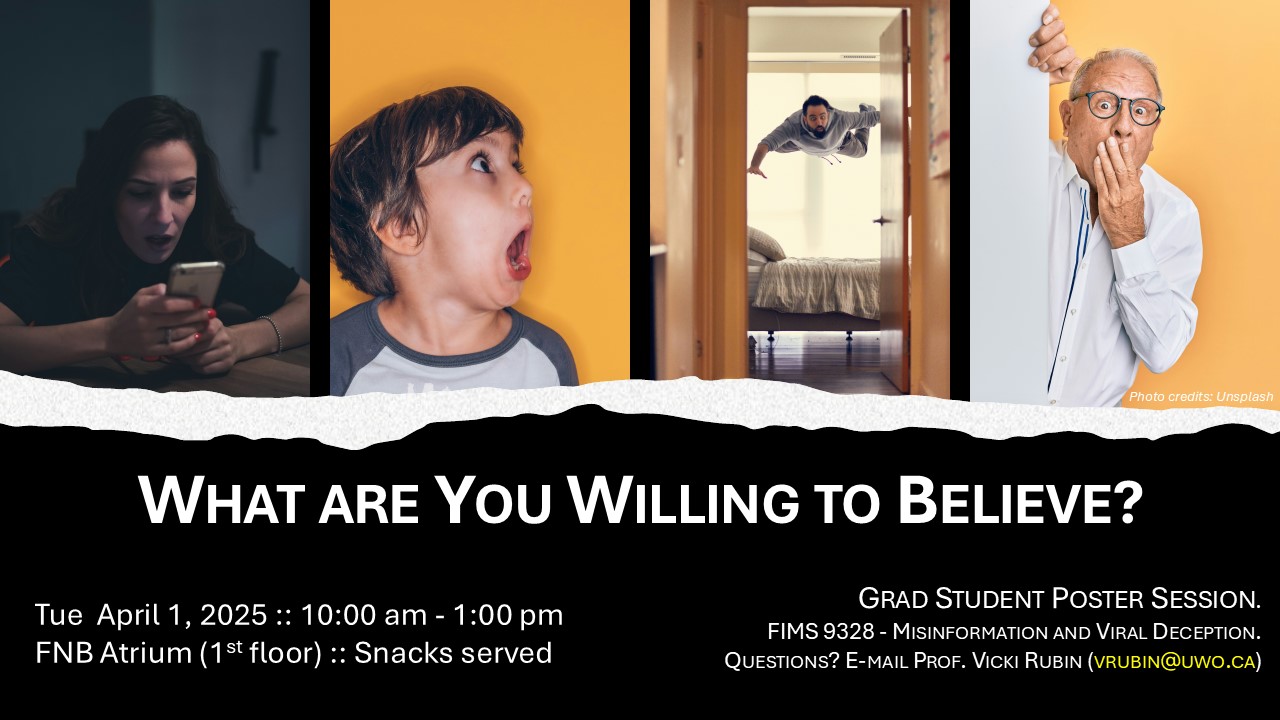On 1 April 2025, FIMS graduate students enrolled in the Winter 2025 “Misinformation and Viral Deception” course presented their term-long projects with their evidence-based findings and detailed analyses of types of deceptive and manipulative tactics in various Case Studies. The themes revolved around mis- and disinformative messaging and how recipients of such manipulative communication had been swayed. The presenters talked about what happened, when and how, as well as why anyone would ever “fall for that.” These Case Studies ranged from influencers hyped-up rhetoric on social media to well-established propaganda and information war tactics, from dubious political messaging and health messaging to misuse of AI in court cases, from conspiracy theories and their persistent tropes to sensationalism and image mis-attribution in the news reporting, to name a few. (See the detailed list of topics below.) These posters contain potential solutions: what could be done to counter-act these deceptive or manipulative strategies if applied under the circumstances similar to those in the Case Studies.
Here is the list of Case Study titles (with graduate student-presenters’ names) and the gallery of showcased poster images (taken on the day of the event, and posted with presenters’ explicit permission):
“How Our Politicians Talk About Things They Don’t Want to Talk About: Climate Change Concerns During the 2023 Wildfire Season” by Michaela McBryde (FIMS MLIS Student)
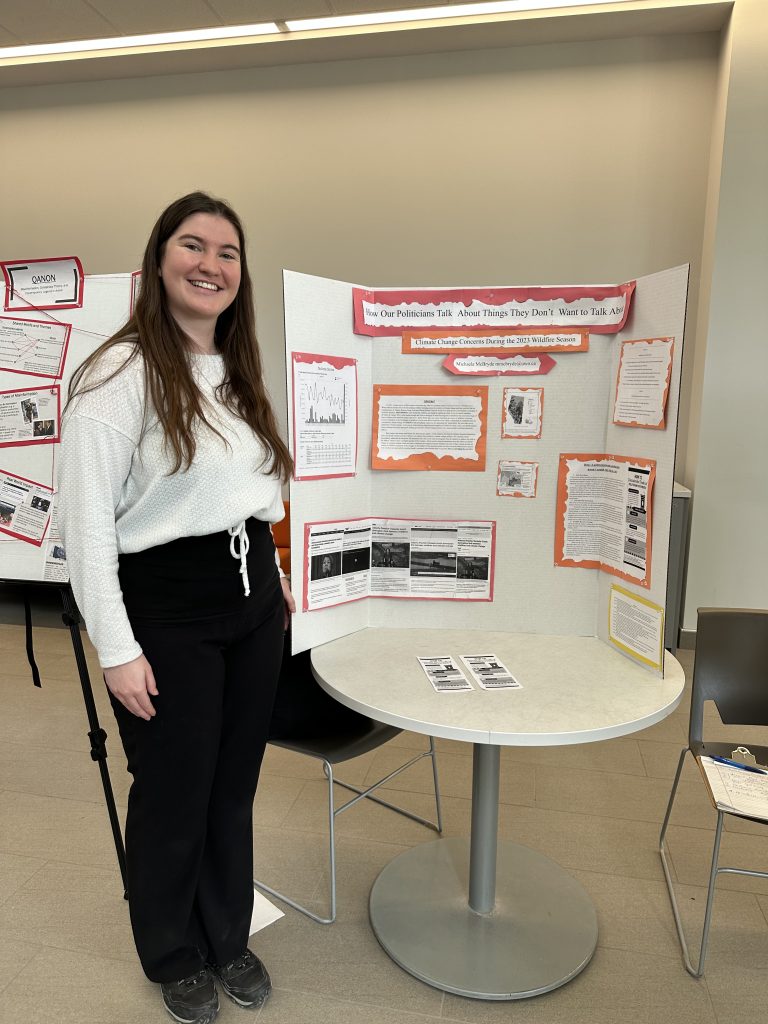
“Influencers, Sunscreen and Misinformation: Why Teens are Trusting Influencers’ Claims on the Harms of Applying Sunscreen” by Robert Berkman (FIMS MLIS Student)
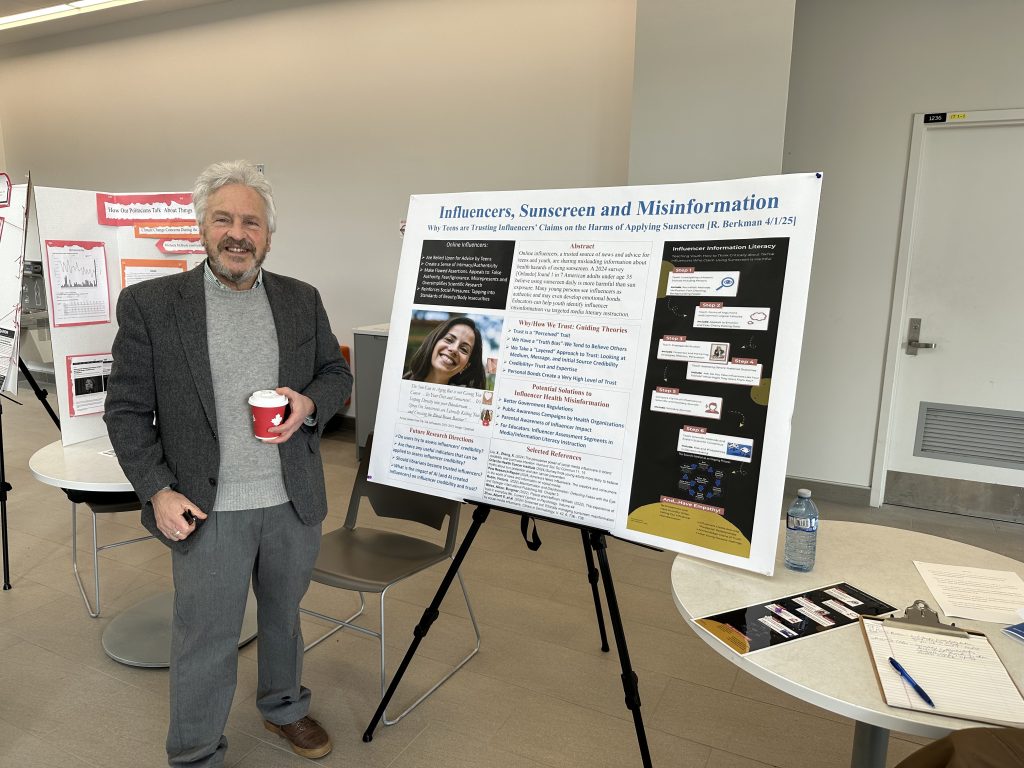
“Brexit Betrayal: How a Bo!!ocks Bus Slogan Helped Sway a Nation” by Andrea Young (FIMS MLIS Student)
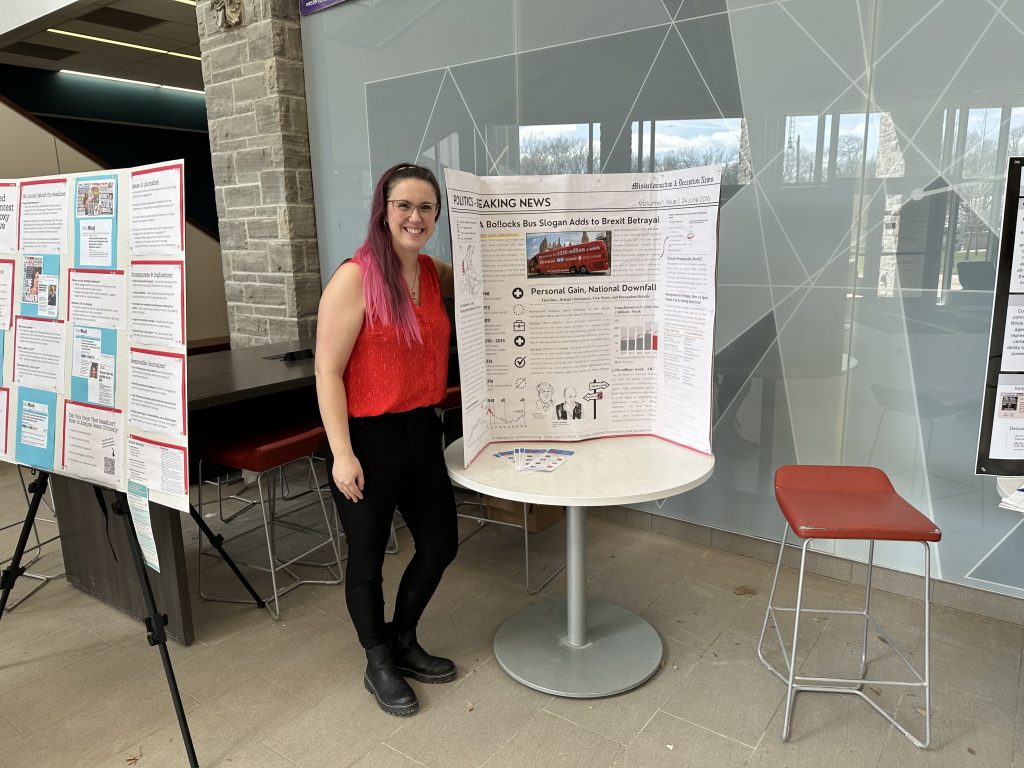
“Lying to the Judge: AI Assisted Citation Misconduct in Mata v Avianca” by Briar Grayson (FIMS MLIS Student)
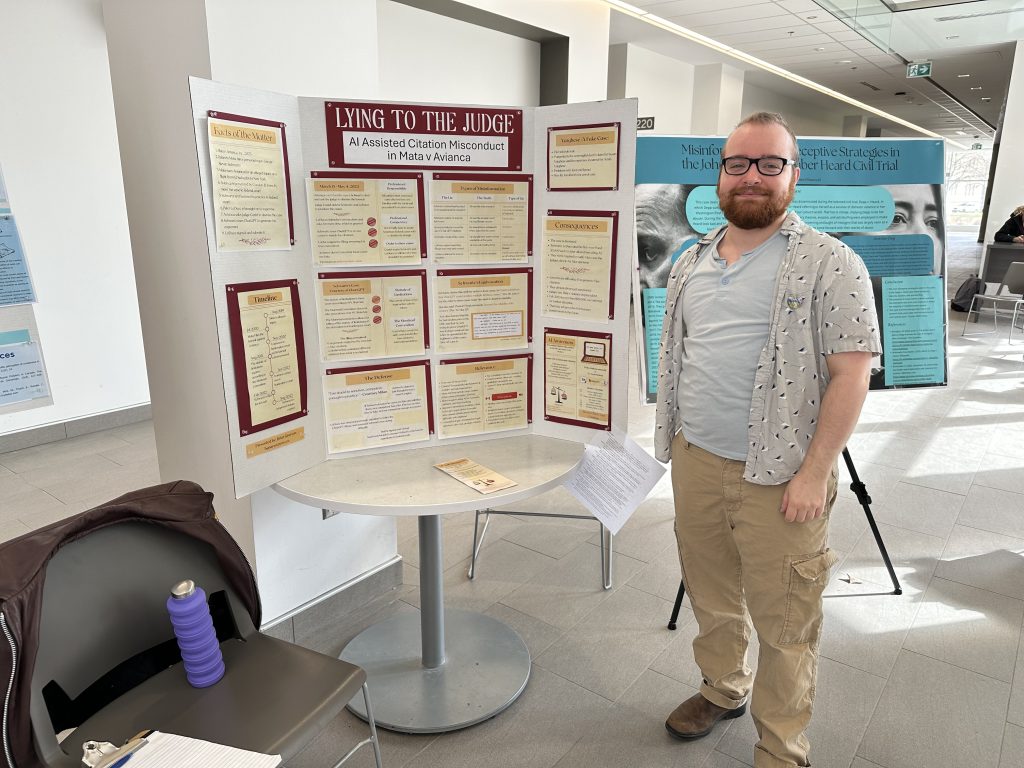
“YouTube Account Hacking and Crypto Scams: a Pervasive Digital Game of Whack-a-Mole” by Alex Goddard (FIMS MLIS Student)
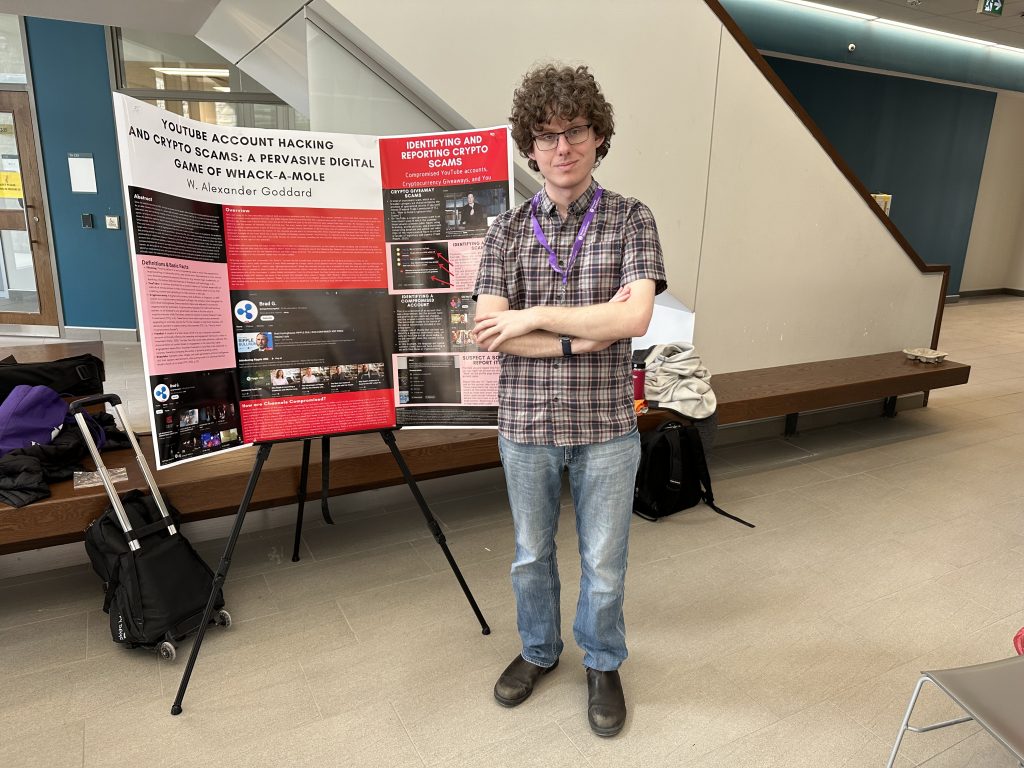
“Sensationalized Headlines: Context Behind the “Foxy Noxy” Narrative” by Amelia Heins (FIMS MLIS Student)
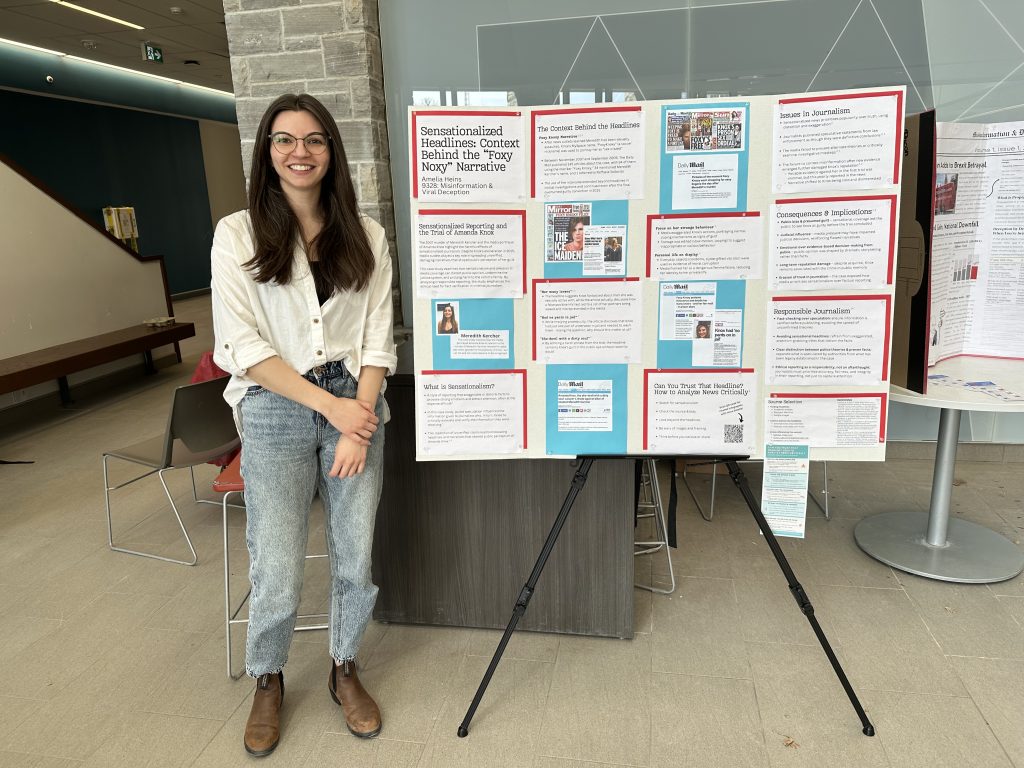
“#Pizzagate: The Making of an Alt-Right Conspiracy Theory” by Dania Homsi (FIMS MLIS Student)
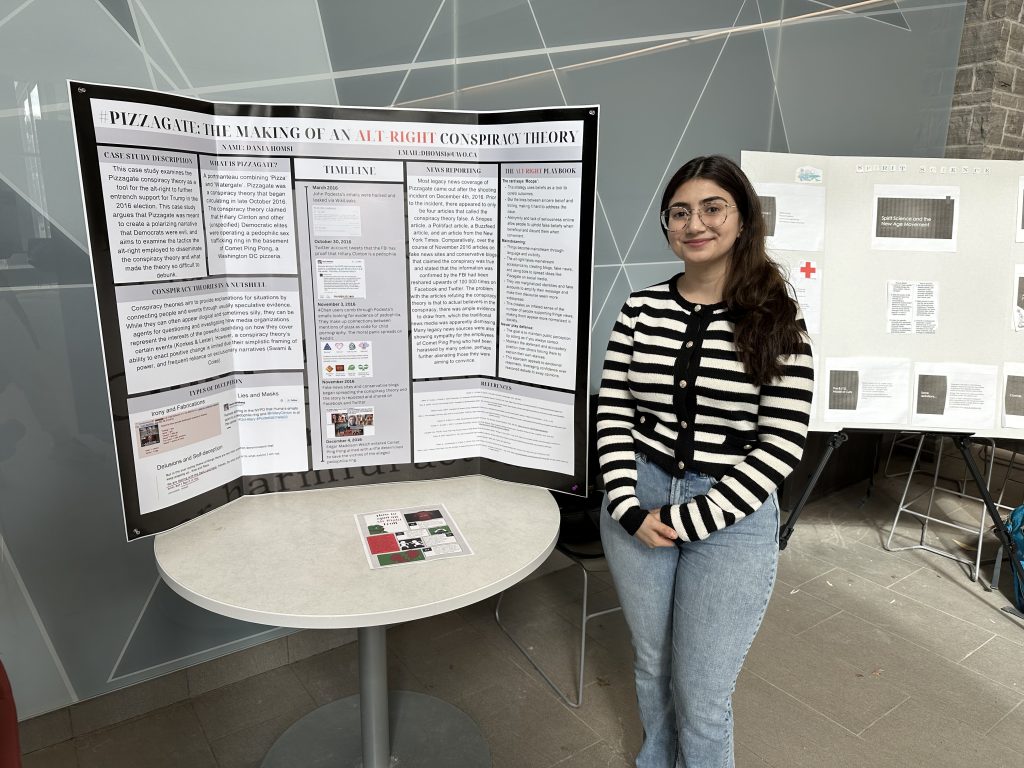
“QAnon: Misinformation, Conspiracy Theory, and Contemporary Legend in Action” by Cassandra Colman (FIMS MLIS Student)
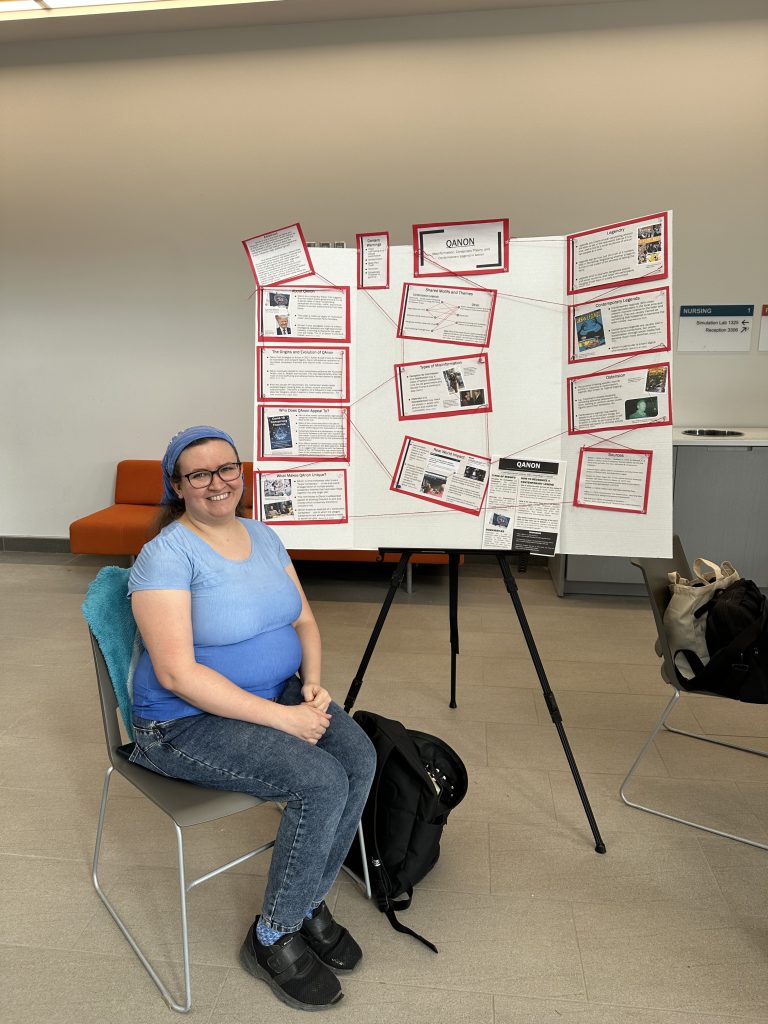
“Misinformation and Deceptive Strategies in the Johnny Depp v. Amber Heard Trial: A Retrospective” by Dalya Emin (FIMS MLIS Student)
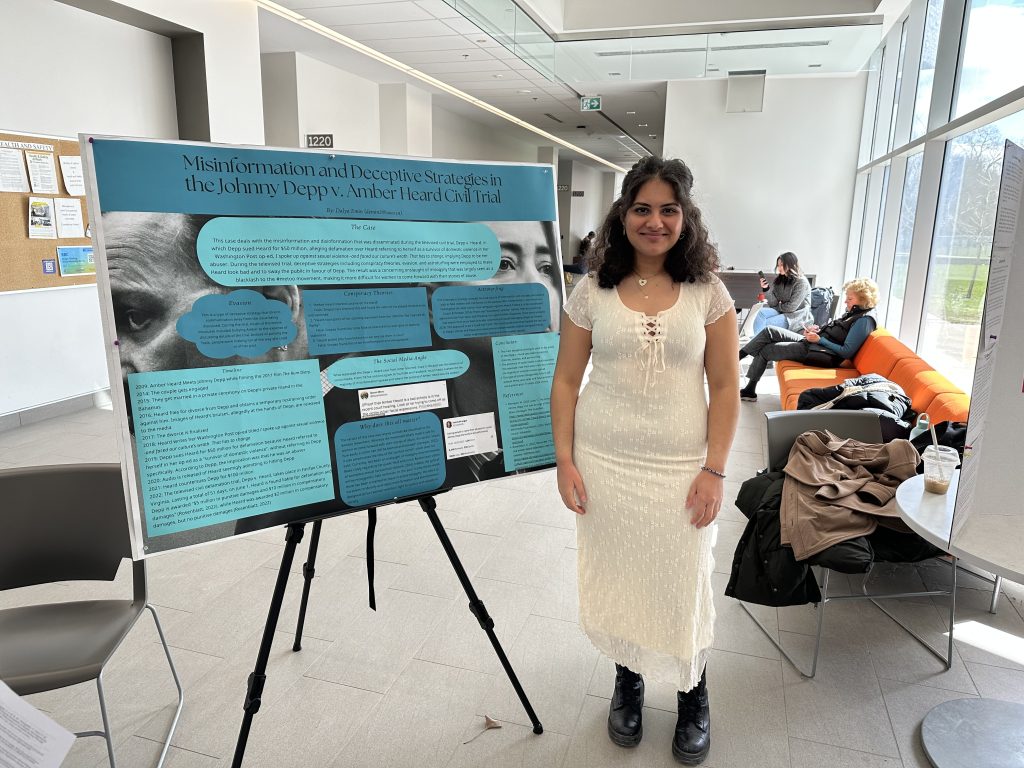
“Artful Ignorance: 17 years, 60 forged paintings, and $80 million USD” by Marta Kopp (FIMS MLIS Student)
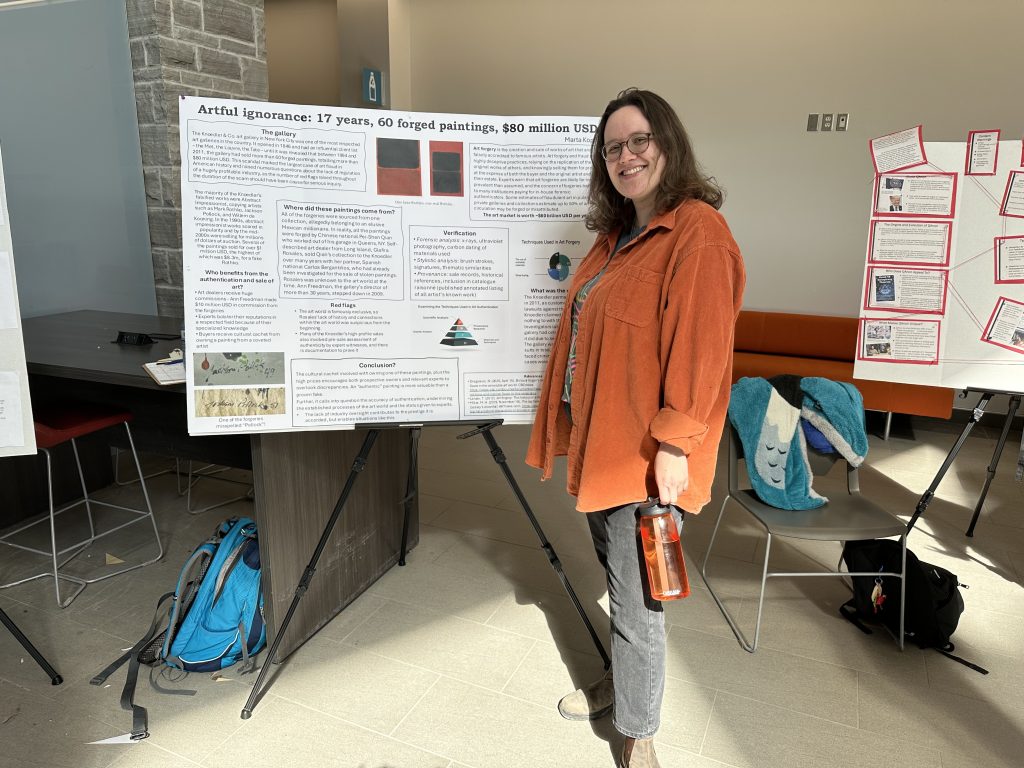
“Global Reset Conspiracy: Covid-19 Disinformation” by Alanna Acchione (FIMS MS PhD Student), Meli Limani (FIMS HIS PhD Student) and Domenic Garisto (FIMS MLIS Student)
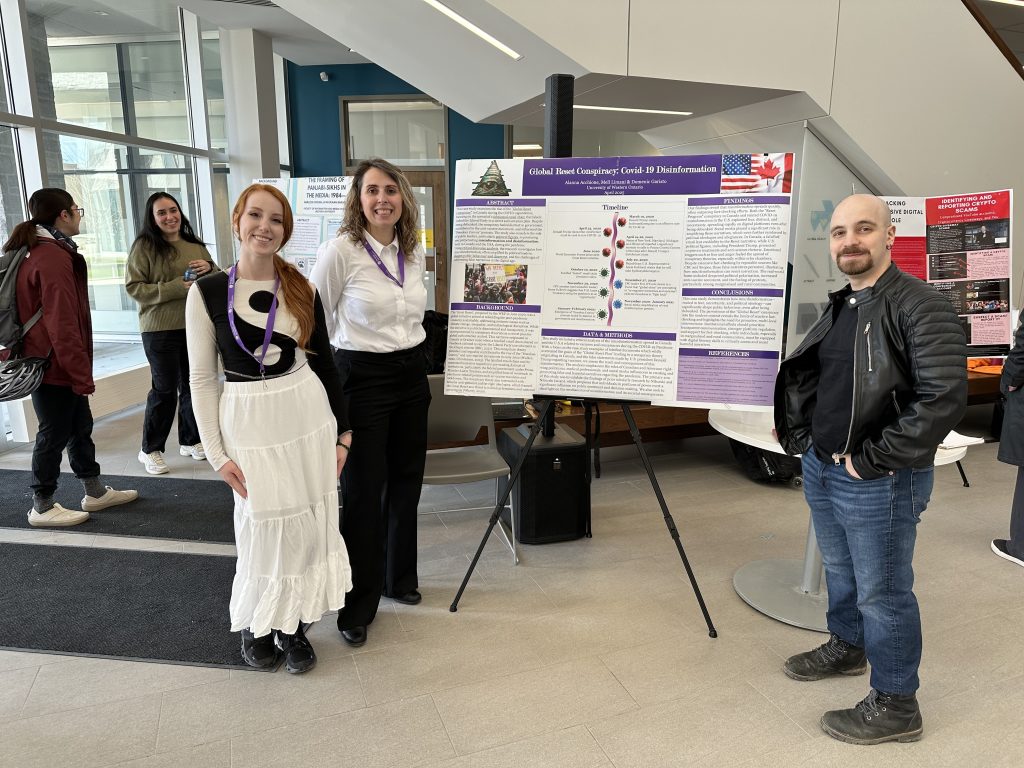
” ‘Healing‘ Belle: How the Notorious Australian Wellness Influencer Deceived Thousands” by Emily Bauman (FIMS MLIS Student)
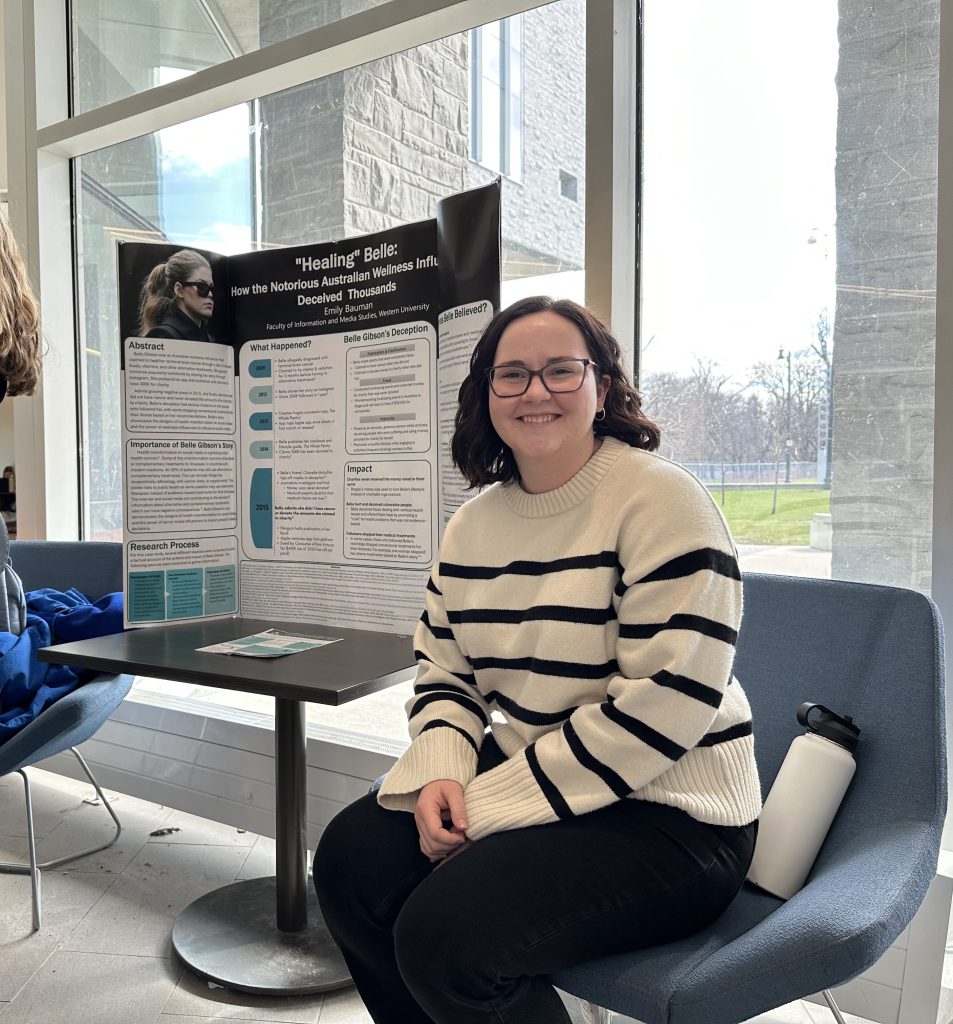
“The framing of Panjabi-Sikhs in the media: 1984—” by Harleen Grewal (FIMS MLIS Student) and Muskaan Baraech (FIMS MMJC Student)
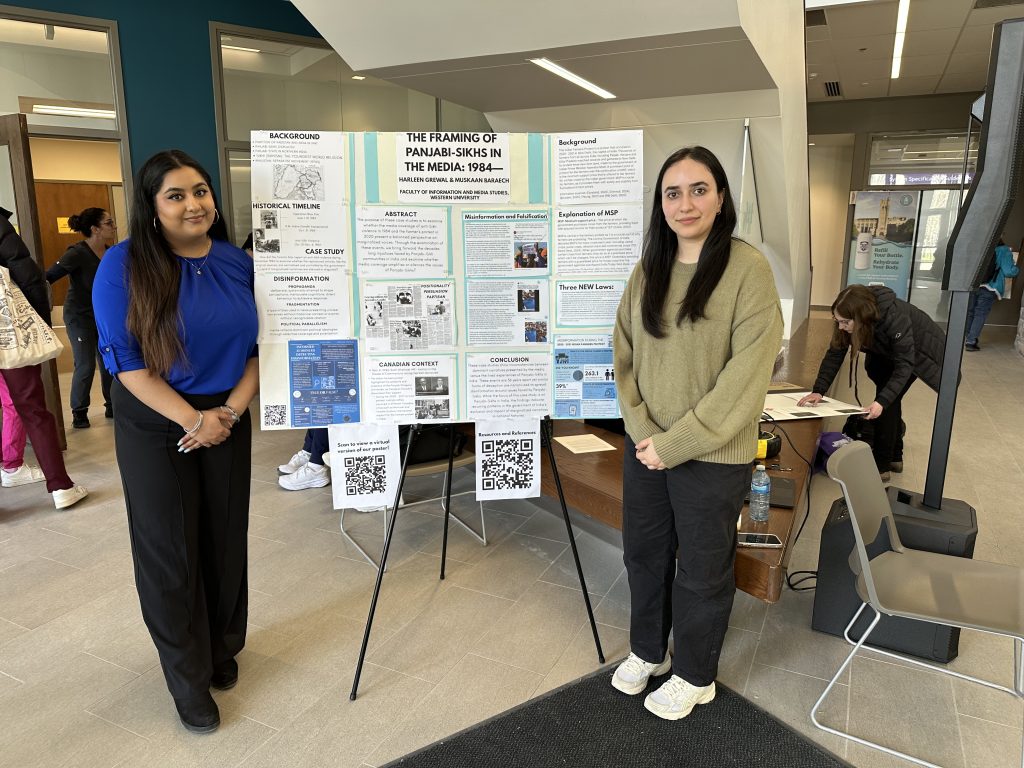
“Moral Panic Journalism: New York Times Coverage of Trans Kids” by Chloe Elek (FIMS MLIS Student)
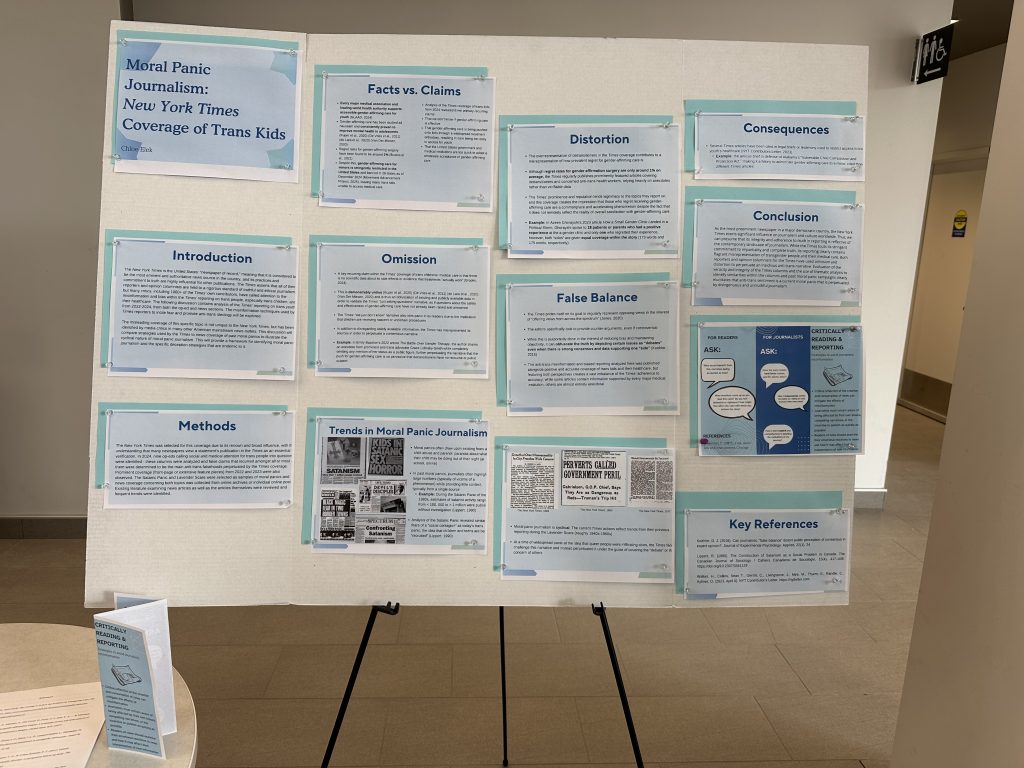
“SPIRIT SCIENCE” by Lilly Cereghini (FIMS MMJC Student)
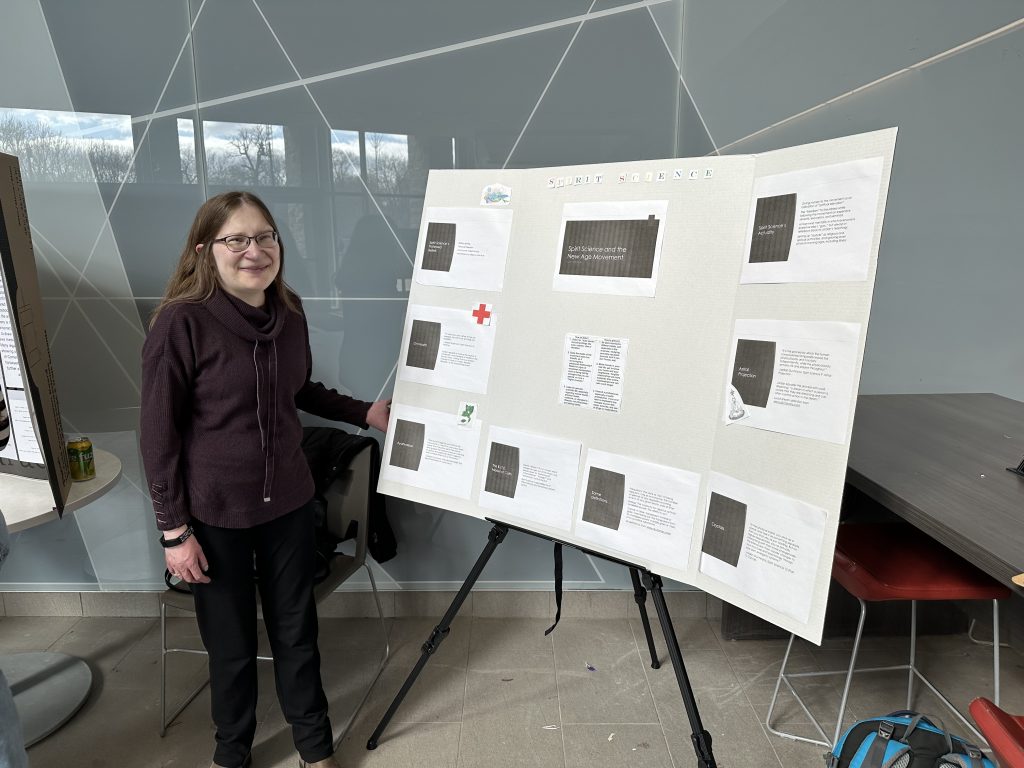
“Operation PBSuccess” by Hannah Argiloff (MA MS Student)
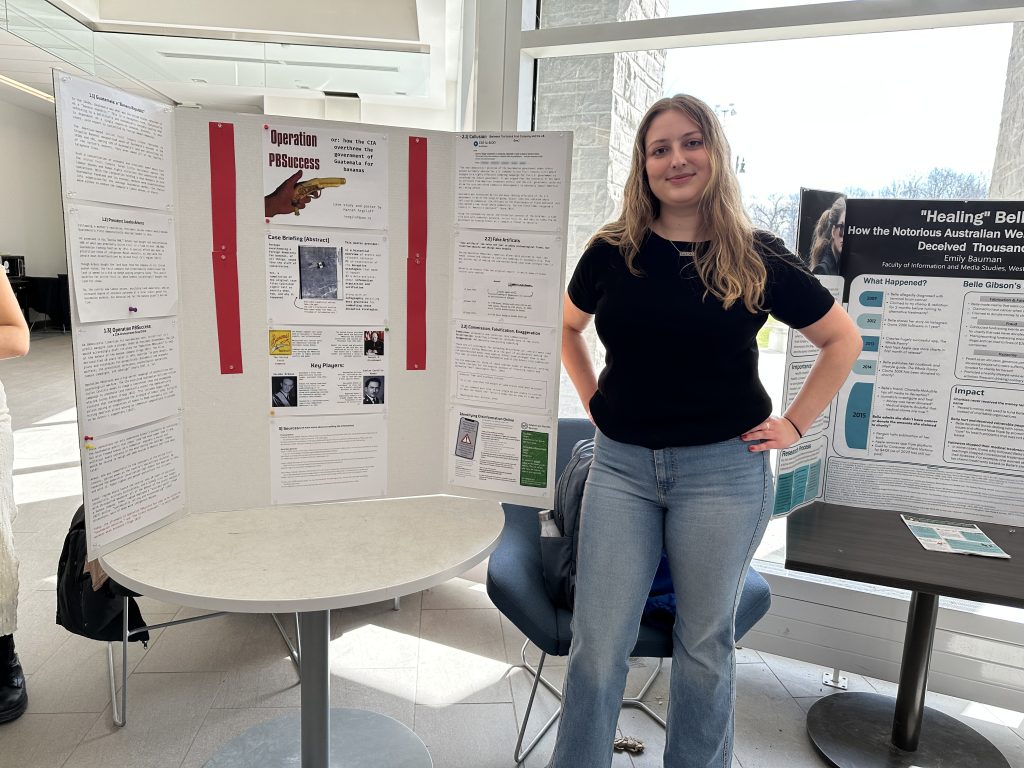
The FIMS academic community, wider Western Universtiy community, as well as the local London general public were invited and were in attendance. Thank you to all of the presenters and visitors for their active engagement with our FIMS graduate students!
If you are reading this post and plan to adopt, adapt, or re-use these ideas, please cite these works as part of this event.
Suggested citation format: Graduate Student’s Last Name, First Name. (1 April 2025). Poster Title. In Rubin, Victoria L. (Ed.) “April Fool's Poster Session: What Are You Willing to Believe?” Available at https://victoriarubin.fims.uwo.ca/2025/03/18/april-fools-poster-session-what-are-you-willing-to-believe/
For any questions or concerns, please contact Dr. Rubin.
